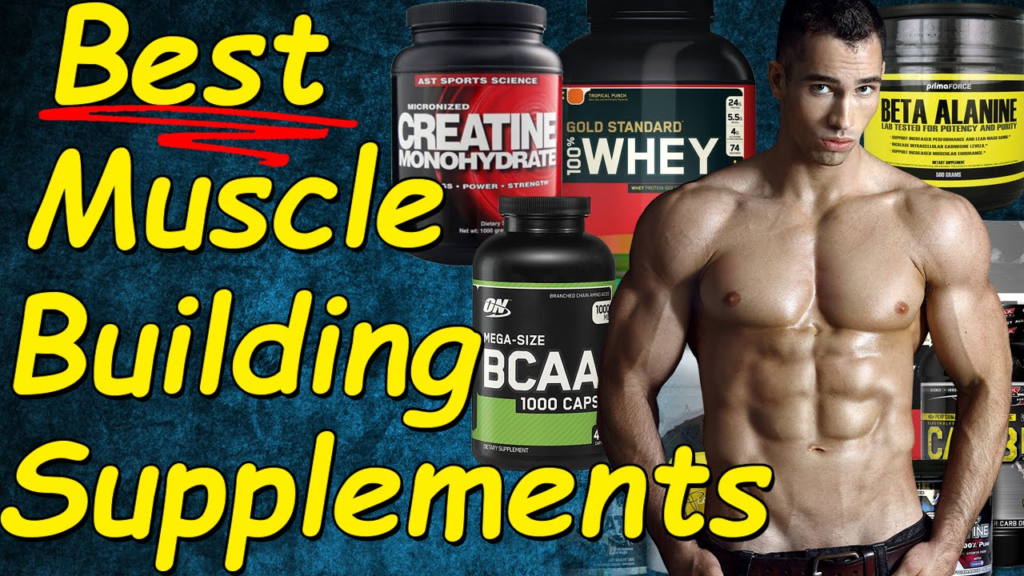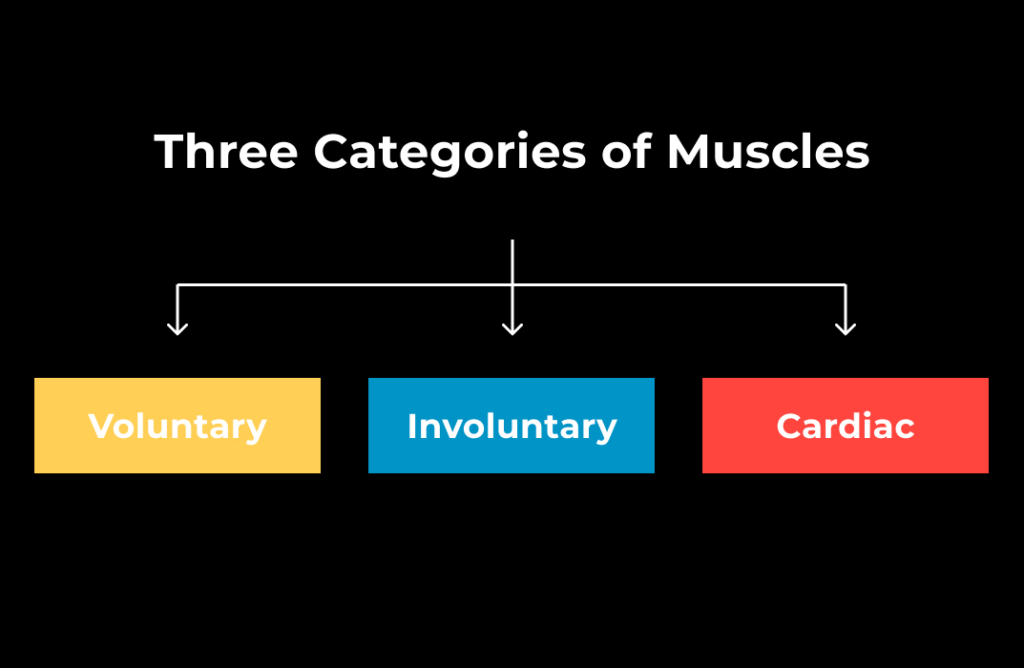HEALTH
Wellhealthorganic.com How To Build Muscle know Tips To Increase Muscles
Muscle growth, or hypertrophy, occurs when muscle fibers undergo stress and adapt. This process begins with resistance training

| Category | Details |
|---|---|
| Key Factors | Genetics, Age, Hormones, Nutrition, Exercise |
| Protein Intake | 1.2 to 2.2 grams per kilogram of body weight |
| Macronutrient Ratios | Protein: 25-35%, Carbohydrates: 45-55%, Fats: 20-30% |
| Rest and Recovery | 7-9 hours of sleep per night, active recovery activities like walking or yoga |
| Training Frequency | 3-5 days per week |
| Sample Workout Plan | Upper Body, Lower Body, Rest, Full Body, Rest, Repeat |
| Compound Exercises | Squats, Deadlifts, Bench Press, Pull-Ups |
| Isolation Exercises | Bicep Curls, Tricep Extensions, Leg Extensions |
| Advanced Techniques | Supersets, Drop Sets, Pyramid Sets |
| Supplements | Protein Powder, Creatine, BCAAs |
| Caloric Surplus | 250-500 extra calories per day for muscle gain |
| Common Mistakes | Overtraining, Poor Nutrition, Ignoring Recovery |
| Progress Tracking | Regular photos, muscle size measurements, strength levels |
| Motivation Tips | Can significantly affect the rate and extent of muscle growth |
| Genetic Influence | Can significantly affect rate and extent of muscle growth |
| Age Factor | Muscle growth is typically more efficient in younger individuals due to higher hormone levels |
| Hormonal Role | Testosterone and growth hormone are critical for muscle development |
| Protein Sources | Lean meats, fish, eggs, dairy products, legumes, nuts and seeds |
| Hydration | Essential for recovery and overall performance; recommended 3.7 liters per day for men, 2.7 liters per day for women (including all fluids) |
| Rest Days | At least 1-2 rest days per week to allow for muscle recovery |
According to wellhealthorganic, Building muscle is a journey many embark on with varying levels of commitment and understanding. Whether you’re looking to bulk up for personal reasons or enhance your athletic performance, knowing how to build muscle effectively can make all the difference. It’s not just about lifting weights; it involves a combination of science, nutrition, and dedication.
If you’ve been wondering how to transform your body into a more robust version of itself, you’re in the right place. This guide offers tips to help you increase muscles while avoiding common pitfalls. Let’s dive deeper into this exciting world where hard work meets smart strategies!
Understanding The Basics Of Muscle Growth

Muscle growth, or hypertrophy, occurs when muscle fibers undergo stress and adapt. This process begins with resistance training. When you lift weights, tiny tears form in the muscle tissue.
The body repairs these tears by fusing fibers together to create stronger muscles. This adaptation leads to increased strength and size over time.
| Factor | Impact |
|---|---|
| Genetics | Influences rate and potential for muscle growth |
| Age | Younger individuals typically build muscle more efficiently |
| Hormones | Testosterone and growth hormone levels significantly impact muscle development |
| Nutrition | Proper intake of macronutrients and micronutrients is essential |
| Exercise | Resistance training and progressive overload are critical for stimulating muscle growth |
Targeting different muscle groups through various exercises is essential for balanced development. Compound movements like squats and deadlifts engage multiple muscles simultaneously, maximizing your workout’s effectiveness.
Progressive overload is vital; gradually increasing weight or intensity challenges your muscles. Consistency in training also plays an important role—frequent workouts push your body toward growth.
Remember that rest is just as crucial as exercise. Muscles need recovery time to rebuild effectively after each session. Neglecting rest can stall progress or even lead to injuries.
Build Muscle Know Tips To Increase Muscles

Strength Training
- Focus on Compound Exercises: Exercises like squats, deadlifts, bench presses, and pull-ups work multiple muscle groups simultaneously and are highly effective for muscle growth.
- Progressive Overload: Gradually increase the weight or resistance you’re using. This forces your muscles to adapt and grow stronger over time.
- Proper Form: Ensure you’re performing exercises correctly to maximize effectiveness and reduce the risk of injury.
2. Workout Routine
- Consistency: Stick to a regular workout schedule. Aim for at least 3-4 days of strength training per week.
- Variety: Mix up your exercises to target different muscle groups and prevent plateaus.
- Rest and Recovery: Allow each muscle group to recover before working it again. Typically, this means giving 48 hours of rest between sessions for the same muscle group.
3. Nutrition
- Protein Intake: Protein is crucial for muscle repair and growth. Depending on your goals and activity level, aim for about 1.2 to 2.2 grams of protein per kilogram of body weight per day.
- Balanced Diet: Include carbohydrates for energy and healthy fats for overall health. A balanced diet ensures that you’re getting the necessary vitamins and minerals.
- Caloric Surplus: To build muscle, you generally need to consume more calories than you burn. Ensure these calories come from nutrient-dense foods rather than just empty calories.
4. Hydration
- Drink Plenty of Water: Staying hydrated helps with muscle recovery and performance. Aim for at least 8 glasses of water daily, and more if you’re sweating heavily.
5. Supplementation
- Consider Supplements: While not necessary for everyone, supplements like whey protein, creatine, and branched-chain amino acids (BCAAs) can support muscle growth and recovery. Consult with a healthcare provider before starting any new supplement.
6. Rest and Sleep
- Get Quality Sleep: Aim for 7-9 hours of quality sleep per night. Sleep is crucial for muscle recovery and overall health.
- Rest Days: Incorporate rest days into your routine to allow your muscles to recover and grow.
7. Track Progress
- Keep a Workout Log: Record your exercises, sets, reps, and weights. Tracking your progress helps you stay motivated and see improvements over time.
- Monitor Changes: Regularly assess muscle size, strength, and overall body composition changes to gauge effectiveness and make necessary adjustments.
8. Mind-Muscle Connection
- Focus on the Muscle: During exercises, concentrate on the muscle you’re working to enhance activation and effectiveness.
9. Seek Professional Guidance
- Personal Trainer: If you’re new to weight training or looking to optimize your routine, consider working with a certified personal trainer.
The Importance Of Nutrition For Building Muscle

Nutrition plays a pivotal role in muscle building. Without the right fuel, your workouts may not yield the desired results.
Protein is essential for repairing and growing muscle fibers after intense training sessions. Add sources like lean meats, fish, eggs, or plant-based proteins to your meals.
Carbohydrates shouldn’t be overlooked either. They provide the energy needed for those tough workouts and help replenish glycogen stores post-exercise. Whole grains, fruits, and vegetables are great choices.
Fats also contribute to overall health and hormone production, and they are vital for muscle growth. Incorporate healthy fats from avocados, nuts, and olive oil into your diet.
Hydration is crucial as well. Dehydration can significantly impair performance and recovery time.
Incorporating balanced meals tailored to individual needs helps maximize potential gains while supporting overall wellness toward increased muscle mass.
Tips For Increasing Muscle Mass

Consistency is key to increasing muscle mass. Establish a regular workout routine that challenges your body with progressive overload. This means growing gradually weights or resistance to stimulate growth.
Focus on compound exercises like squats, deadlifts, and bench presses. These movements engage multiple muscle groups simultaneously for maximum efficiency.
| Method | Description |
|---|---|
| Photos | Take regular progress photos to visually track changes |
| Measurements | Measure muscle size regularly to monitor growth |
| Strength Levels | Track the weights you’re lifting to gauge improvements in strength |
Don’t forget about rest days. Muscles need time to repair and grow stronger after intense workouts. Aim for at least 48 hours before targeting the same muscle group again.
Stay hydrated as well; water plays a vital role in recovery and performance. Incorporate high-quality protein sources into your meals—think chicken, fish, legumes, and dairy—to support muscle synthesis.
Track your progress. Monitoring gains helps keep you motivated while allowing you to adjust your approach for continued improvement.
Common Mistakes To Avoid When Trying To Build Muscle
Many aspiring bodybuilders make critical mistakes that hinder their progress. One common error is skipping warm-ups. Neglecting to prepare your muscles properly can lead to injuries and setbacks.
Another mistake is focusing solely on lifting heavy weights without mastering form. Poor technique not only reduces effectiveness but also increases the risk of injury.
People often underestimate rest days, thinking that more workouts equals faster gains. However, muscles grow during recovery periods, so adequate rest is essential.
Additionally, some individuals ignore protein intake post-workout. Consuming protein soon after exercising supports muscle repair and growth.
Many rely too heavily on supplements rather than prioritizing whole foods for nutrition. While supplements can help, a balanced diet should always come first for optimal muscle-building results.
The Role Of Supplements In Building Muscle

Supplements can support your muscle-building journey. They are not a magic solution, but they can enhance your efforts with proper nutrition and exercise.
Protein powders, like whey or plant-based options, help meet daily protein requirements. This macronutrient is crucial for muscle repair and growth after workouts.
Creatine is another popular supplement known for its effectiveness. It boosts strength and power during high-intensity training sessions, allowing users to push harder and lift heavier over time.
Branched-chain amino acids (BCAAs) also deserve attention. They may reduce muscle soreness and improve recovery rates after intense workouts.
While supplements offer benefits, remember they should complement a balanced diet rather than replace whole foods. Focus on nourishing meals before considering additional aids to maximize muscle gains effectively.
Important Factors For Muscle Growth

Several critical factors play a significant role in building muscle. First, consistency is key. Regular workouts help establish a routine that your body adapts to over time.
Progressive overload is another essential element. Gradually increasing the weight or resistance in your exercises challenges your muscles and promotes growth.
Rest and recovery are often overlooked but incredibly vital. Muscles need time to repair after intense workouts, so adequate sleep and rest days can vastly improve results.
Hydration should not be underestimated either. Drinking enough water supports overall health and enhances performance during training sessions.
Individual genetics can influence muscle growth rates. Understanding your body’s unique responses may help you tailor an effective workout plan suited just for you.
Nutrition And Diet For Muscle Building
Proper nutrition is a cornerstone of muscle building. Consuming the right balance of macronutrients fuels workouts and promotes recovery.
Protein plays a critical role in muscle repair and growth. Aim for high-quality sources like chicken, fish, beans, and legumes. Spread protein intake throughout the day to maximize benefits.
Carbohydrates are equally important. They provide energy for your workouts and replenish glycogen stores post-exercise. Focus on complex carbs such as whole grains, fruits, and vegetables for sustained energy levels.
Don’t forget healthy fats; they support hormone production essential for muscle growth. Incorporate avocados, nuts, seeds, and olive oil into your meals.
Hydration also matters significantly for performance and recovery. Drinking enough water can enhance strength output during training sessions while aiding in nutrient absorption post-workout.
Consider meal timing, too. Eating strategically around workout times can optimize gains by ensuring your body has what it needs when it needs it most.
Best Exercises For Building Muscle

When it comes to building muscle, choosing the right exercises is crucial. Compound movements should be your go-to. These exercises engage multiple muscle groups and promote overall strength.
Squats are a fantastic choice for strengthening the legs and core. They help build mass while also improving balance and flexibility.
Deadlifts target your back, glutes, and hamstrings, making them essential for developing full-body strength. Proper form is key here to avoid injury.
Bench presses work wonders for your chest and triceps. This classic exercise builds upper body mass and enhances pushing power.
Don’t overlook pull-ups or chin-ups; they’re excellent for simultaneously developing back muscles and biceps.
Incorporating these exercises into your routine can lead to significant gains in muscle size and strength when paired with proper nutrition and rest strategies.
Supplements That Can Aid In Muscle Growth
Certain supplements can support muscle growth. Protein powders are among the most popular options. They provide an easy and effective way to increase daily protein intake, which is essential for muscle repair and development.
Creatine is another well-researched supplement known for enhancing performance during high-intensity workouts. It helps replenish energy stores in muscles, allowing you to push harder and lift heavier.
Branched-chain amino acids (BCAAs) are also beneficial. They help reduce muscle soreness post-workout and may decrease fatigue during exercise sessions.
Consider omega-3 fatty acids. These healthy fats reduce inflammation, aiding recovery after intense training periods.
Incorporating these supplements into your routine could give you an edge on your journey toward increasing muscle mass while complementing proper nutrition and training efforts.
Conclusion
Building muscle is a journey that requires dedication and the right approach. It’s not just about lifting weights; it’s about understanding your body’s needs.
The interplay of workouts, nutrition, and recovery plays a crucial role in achieving your goals. Each element contributes to how effectively you can increase muscle mass.
Stay informed about common pitfalls. This knowledge will help you avoid setbacks and keep progressing toward your objectives.
Experiment with different exercises and meal plans to find what works best for you. Personalization is key in this process.
Remember, consistency beats intensity every time. Small but steady efforts lead to significant changes over time.
Keep learning, stay motivated, and embrace the challenges as part of your growth story.
FAQS
What is the best way to start building muscle?
Start with a solid workout plan that includes strength training exercises. Focus on compound movements like squats, deadlifts, and bench presses. Pair this with adequate nutrition for optimal results.
How often should I train to build muscle?
Aim for at least three to five times per week. Ensure you give your muscles time to recover between sessions. This rest is essential for growth.
Do I need supplements to gain muscle?
Supplements can support your diet but are not mandatory. Prioritize whole foods first. If needed, protein powder or creatine can be beneficial when used alongside a balanced diet.
Can women build muscle just as effectively as men?
Absolutely! Muscle-building principles apply equally regardless of gender. Women may see slower results due to hormonal differences but can still achieve impressive gains.
How long does it take to see noticeable muscle growth?
Results vary based on individual factors such as genetics and consistency in training and nutrition. Generally, with dedicated effort, you can expect to see some changes within 4-8 weeks.
Also Read: Rs 125 Only On thesparkshop.in Men Jackets & Winter Coats

HEALTH
Top 5 Reasons to Choose WellHealthOrganic Vitamin B12 for Your Wellness Journey
It might be daunting to choose the correct supplements in a world where health fads come and go. Among the many choices, WellHealthOrganic Vitamin B12 is

Introduction to WellHealthOrganic Vitamin B12
It might be daunting to choose the correct supplements in a world where health fads come and go. Among the many choices, WellHealthOrganic Vitamin B12 is a notable competitor. Though many individuals are unaware of its importance, this potent vitamin is vital to our health. Are you prepared to take charge of your path to wellness? Find out why deciding to use WellHealthOrganic Vitamin B12 might be the breakthrough you’ve been waiting for. It’s time to discover how this supplement may improve your well-being like never before, thanks to its well-established advantages and distinctive features.
What Is Vitamin B12
Water-soluble vitamin B12 is necessary for blood cell production, DNA synthesis, and nerve health maintenance. It’s essential for general energy levels and brain function. Fatigue, neurological issues, and anemia may all result from deficiencies. It is mostly present in meals derived from animals, such as meat, dairy, and eggs, as well as in goods made from fortified plants. People with low levels or dietary limitations are often advised to take supplements.
| Category | Details |
|---|---|
| Product Name | Wellhealthorganic Vitamin B12 |
| Form | Tablets, Capsules, Sublingual Drops |
| Active Ingredient | Methylcobalamin |
| Dosage | 1000 mcg per tablet/capsule/drop |
| Recommended Use | 1 tablet/capsule/drop daily or as directed by a healthcare provider |
| Bioavailability | High, due to the use of Methylcobalamin |
| Suitable For | Vegetarians, Vegans, Older Adults, Athletes |
| Free From | Gluten, Soy, Dairy, Artificial Colors, and Preservatives |
| Certifications | GMP Certified, Third-Party Tested |
| Packaging | Recyclable, BPA-Free Containers |
| Storage Instructions | Store in a cool, dry place, away from direct sunlight |
| Shelf Life | 2 years from the date of manufacture |
| Health Benefits | Energy Boost, Improved Mental Clarity, Red Blood Cell Formation, Neurological Health |
| Potential Side Effects | Rare; may include dizziness, headache, nausea |
| Price Range | $15 – $30 per bottle (60 tablets/capsules/drops) |
| Availability | Online and in select health stores |
| Customer Rating | 4.8/5 based on customer reviews |
| Company Mission | Promote holistic health through high-quality, natural supplements |
| Customer Support | 24/7 support via email and phone |
Importance of Vitamin B12 for Overall Wellness
Vitamin B12 is essential for preserving general health. It produces red blood cells, which carry oxygen throughout the body. This procedure fights weariness and maintains energy levels.
B12 also promotes brain function. A healthy neurological system is crucial for emotional stability and cognitive function. Low levels might eventually cause memory loss or even mood changes.
Vitamin B12 also facilitates the production of DNA. Because it aids in cell division and growth, this is especially crucial during fast development, such as infancy or pregnancy.
B12 is mostly found in animal sources, so getting adequate B12 might be difficult for those who follow a vegetarian or vegan diet. Adding superior alternatives to your diet guarantees you fulfill your daily needs without sacrificing your food preferences.
The Benefits of Choosing a High-Quality Supplement like WellHealthOrganic Vitamin B12

Selecting a premium supplement like WellHealthOrganic Vitamin B12 may make all the difference in your quest for health. Choosing top quality is an investment in your well-being.
The most notable advantage is bioavailability. To optimize its benefits, WellHealthOrganic ensures that its Vitamin B12 is readily absorbed by the body. This translates into increased vigor and energy throughout the day.
Another benefit is the integrity of the ingredients. WellHealthOrganic ethically acquires all its ingredients and prepares them without adding dangerous additives or fillers.
Furthermore, consistency is important. A reputable company offers goods that pass rigorous quality inspections, guaranteeing that every batch contains powerful nutrients.
Selecting WellHealthOrganic means partnering with a business that provides natural wellness solutions that promote holistic health practices—a crucial component of any successful supplement regimen.
How WellHealthOrganic is Different from Other Vitamin B12 Supplements on the Market
In a competitive market, WellHealthOrganic Vitamin B12 distinguishes itself. Its recipe is made entirely of organic, clean components that put your health first and don’t include any artificial additives. This dedication to excellence guarantees optimal nutrition absorption.
WellHealthOrganic provides a special combination of methylcobalamin and adenosylcobalamin, contrasting with many of its rivals. Because these forms are bioavailable, your body can utilize them quickly for the most benefit.
Furthermore, sourcing counts. Sustainable farms provide the ethically obtained products that WellHealthOrganic emphasizes. You can be sure that each capsule embodies environmental awareness that other manufacturers often neglect.
It also stands out for being transparent about testing. Before being sent to customers, a third party puts each batch through a thorough testing process to guarantee potency and purity. By selecting WellHealthOrganic, you choose integrity in wellness goods rather than merely a supplement.
Importance of Vitamin B12 for overall Health and wellness
It is essential for sustaining several body processes and general health to take vitamin B12. It is necessary for DNA synthesis, the production of red blood cells, and the health of the brain system. Sufficient amounts of vitamin B12 are necessary for heart health, mood management, and energy synthesis.
Red Blood Cell Formation:
- It is essential for producing red blood cells, which carry oxygen throughout the body.
- Prevents anemia, characterized by fatigue and weakness due to low red blood cell count.
DNA Synthesis:
- Vital for DNA production and repair.
- Supports cellular function and replication.
Nervous System Health:
- Maintains myelin sheath, protecting nerve fibers.
- Enhances nerve cell communication and overall neurological function.
Brain Health:
- Plays a role in cognitive function and memory.
- May reduce the risk of neurodegenerative diseases such as Alzheimer’s.
Energy Production:
- Aids in converting food into energy.
- Helps prevent fatigue and boosts overall energy levels.
Mood Regulation:
- Involved in the production of serotonin, a neurotransmitter that affects mood.
- Can help reduce symptoms of depression and anxiety.
Heart Health:
- Low levels of homocysteine, an amino acid linked to heart disease.
- Supports cardiovascular health and reduces the risk of heart attacks and strokes.
Bone Health:
- Important for maintaining bone density.
- Reduces the risk of osteoporosis and fractures.
Immune System Support:
- Strengthens the immune system.
- Enhances the body’s ability to fight infections and illnesses.
Skin, Hair, and Nail Health:
- Promotes healthy skin, hair, and nails.
- Prevents conditions like dermatitis and brittle nails.
Tips for Incorporating WellHealthOrganic Vitamin B12 into Your Daily Routine
It may be easy and pleasurable to include WellHealthOrganic Vitamin B12 into your everyday routine. Start by deciding when to take your supplement daily—consistency is essential.
It might be easier to remember if you have it with breakfast. Choose what works best for you, whether combined with whole-grain toast or added to your morning smoothie.
Consider setting reminders on your phone to ensure you never forget a dosage. This little product may have a huge impact.
If you want to keep a diary or monitor your behaviors, make sure that taking your vitamin is a regular practice. It will keep you from breaking the habit and let you track your emotional state over time.
Never be afraid to speak with a medical expert about successfully incorporating this product into other areas of your wellness journey. They may provide you with unique information
Real Customer Testimonials and Results.
Real customer experiences with WellHealthOrganic Vitamin B12 reveal powerful transformations. Many users report increased energy levels shortly after starting their daily regimen.
One satisfied customer shared that they felt a noticeable difference in their focus and productivity at work. This boost helped them tackle tasks with newfound enthusiasm.
Another user highlighted the positive impact on their mood. They expressed gratitude for finding a supplement that supports emotional well-being without any negative side effects.
Parents have also chimed in, noting improvements in their children’s concentration and overall health since incorporating WellHealthOrganic into family routines.
These testimonials vividly illustrate how WellHealthOrganic Vitamin B12 has effectively contributed to various wellness journeys. Each story reflects individual progress, underscoring the product’s meaningful role in enhancing the quality of life for its users.
Conclusion
Regarding health supplements, WellHealthOrganic Vitamin B12 stands out as the best option since it provides several advantages essential for general well-being. Vitamin B12 is important for many vital body processes, such as the production of red blood cells, DNA synthesis, and the health of the neurological system. It also helps with energy levels, mood, and cognitive function.
Selecting WellHealthOrganic Vitamin B12 guarantees a superior product with superb bioavailability, components sourced ethically, and thorough independent testing for purity and potency. Its unique composition, which contains both methylcobalamin and adenosylcobalamin, distinguishes it from other supplements.
It’s easy and pleasant to include WellHealthOrganic Vitamin B12 in your daily routine. Many users claim notable increases in their energy, attention, mood, and general health. These encouraging comments demonstrate how the supplement significantly improves the quality of life for people and families. Decide to start your journey toward greater well-being by investing in your health with WellHealthOrganic Vitamin B12.
FAQS
- What is WellHealthOrganic Vitamin B12?
- WellHealthOrganic Vitamin B12 is a high-quality dietary supplement that supports overall health by providing essential Vitamin B12 for energy production, red blood cell formation, and nervous system health.
- Why is Vitamin B12 important?
- Vitamin B12 is vital for producing red blood cells, DNA synthesis, and maintaining a healthy nervous system. It also supports energy metabolism, cognitive function, and emotional well-being.
- Who should take WellHealthOrganic Vitamin B12?
- This supplement is beneficial for anyone looking to improve their overall health, particularly those who may have a Vitamin B12 deficiency, such as vegetarians, vegans, older adults, and individuals with certain medical conditions.
- How do I take WellHealthOrganic Vitamin B12?
- Follow the dosage instructions on the product label or as your healthcare provider advises. For better absorption, take the supplement with a meal.
- Are there any side effects?
- WellHealthOrganic Vitamin B12 is generally well-tolerated. However, some individuals might experience mild side effects such as digestive discomfort. Always consult your healthcare provider if you have concerns or experience adverse reactions.
- Can I take WellHealthOrganic Vitamin B12 with other medications?
- While Vitamin B12 is usually safe to take with most medications, it’s important to consult your healthcare provider before starting any new supplement to ensure no potential interactions.
- Is WellHealthOrganic Vitamin B12 suitable for vegetarians and vegans?
- Yes, WellHealthOrganic Vitamin B12 is suitable for vegetarians and vegans. It is designed to provide an essential nutrient often lacking in plant-based diets.
- How soon can I expect to see results?
- Individual results may vary, but many users report increased energy levels and improved focus within a few weeks of regular use. Consistent use is key to experiencing the full benefits.
- What makes WellHealthOrganic Vitamin B12 different from other supplements?
- WellHealthOrganic Vitamin B12 stands out because it uses organic, clean ingredients, superior bioavailability, and a unique blend of methylcobalamin and adenosylcobalamin. Additionally, the product undergoes rigorous third-party testing to ensure quality and potency.
- Where can I purchase WellHealthOrganic Vitamin B12?
- WellHealthOrganic Vitamin B12 can be purchased online through the official WellHealthOrganic website or authorized retailers. Always ensure you buy from reputable sources to guarantee the product’s authenticity.
HEALTH
Abbott Laboratories Accused of Hiding NEC Risk In Infants

Abbott Laboratories is a leading global healthcare brand that produces a wide range of medical products, including diagnostics, pharmaceuticals, and nutrition supplements. Its key product line includes baby formula, a crucial source of nutrition for infants who don’t receive breastmilk. Infant formula is said to provide vital nutrients essential for an infant’s growth and development in their early stages of life.
According to a recent Drugwatch news report, parents of premature babies had filed lawsuits against Abbott. The complaints revealed that Abbott was aware of the risk of NEC (necrotizing enterocolitis) in infants and kept selling their products.
WebMD defines NEC as a dangerous gastrointestinal problem that destroys the intestinal tissues. This fatal condition usually develops within the first two weeks of an infant’s life who was fed formula milk. In some babies, NEC may be mild, however, others may face chronic symptoms.
This article will discuss the recent legal allegations against Abbott Laboratories for not informing customers about this fatal side effect.
Abbott Charged Guilty for Concealing NEC Risks
Recently, Insurance Journal reported that Abbott Laboratories was accused of not being open about the health risks of baby formula. Such an incident was presented by the lawyer of Margo Gill, a mother whose premature daughter consumed Abbott’s Similac Special Care 24 formula and suffered. She developed NEC and also brain damage.
Gill’s NEC lawsuit claimed that Abbott Laboratories chose profits over the safety of infants. The company spent over $100 million on marketing baby formula annually but didn’t warn customers about its dangers. This trial started at the state court of St. Louis and is the first of the thousands of such lawsuits against Abbott. As of October 2024, nearly 598 lawsuits are pending in MDL.
However, the company’s lawyer argued that Abbott’s baby formula didn’t cause Gill’s baby NEC. Rather, she had pre-existing health conditions and developed NEC before consuming Similac Special Care.
However, in the recent past, Reckitt Benckiser Group PLC and Abbott Laboratories had been under legal scrutiny for similar accusations. In March, a jury awarded $60 million to the family of an infant who died after being fed Reckitt’s cow’s milk-based formula.
Additionally, a Bloomberg Intelligence analyst, Holly Forum, estimated that nearly 3,000 cases might get filed in the coming days. Since she has been learning about the baby formula litigation updates, she asserted that manufacturers might face $1.5 billion in liabilities.
Lawsuit Against Abbott Over Similac NEC Risks Moves Forward
In July 2023, AboutLawsuits.com reported, that a mother from Maryland was allowed to ask for punitive damages from Abbott Laboratories.
However, in January, Abbott decided to reject this complaint filed by Keosha Diggs back in September 2022. Later, this case was consolidated before Judge Pallmeyer. Diggs’ suit sought both compensatory and punitive damages for her child’s NEC diagnosis. Abbott had argued the case didn’t cater to Maryland’s high standard for punitive damages, which required proving heinous conduct.
However, Judge Pallmeyer had rejected Abbott’s motion. He stated that the claims were severe enough to meet Maryland’s standards. Diggs accused Abbott of marketing its products as essential for preterm infants despite knowing about the risks posed by its cow’s milk-based formula. The court observed that the claims were supported by scientific studies that proved Abbott guilty of this accusation.
While this ruling allows the case to proceed, it doesn’t promise a win for Diggs. If successful, Abbott could face profound punitive damages, which may greatly exceed compensatory awards because of Maryland’s strict laws.
Hence, TorHoerman Law suggests parents whose premature infants have suffered from NEC because of infant formula, should seek legal recourse. First, it is necessary to establish that your baby was fed baby formula in the NICU and present necessary medical records. Next, consult a lawyer and share every detail with them. They will evaluate your case and determine if you qualify for a lawsuit. After that, they will guide you through the legal process and ensure you receive the compensation you deserve.
Other than getting covered for the damages, a lawsuit also helps to raise awareness and alert other parents. Once they choose other options, like breastfeeding, the chances of infants developing NEC might decrease.
FAQs
Why is Abbott Laboratories facing legal issues for its baby formula?
Abbott Laboratories is experiencing legal problems for concealing the risks of its baby formula. This is especially true for its cow’s milk-based products, which have been linked to necrotizing enterocolitis (NEC) in premature infants. The lawsuits claim the company failed to warn parents about these potential dangers. They kept producing their baby formula products, which led to severe health consequences for affected infants.
What bacteria is present in Abbott baby formula products?
A few Abbott baby formula products, including Similac, were linked to contamination with Cronobacter sakazakii. This harmful bacteria may cause severe infections in infants, especially those who are premature or have poor immune systems. This resulted in a major recall in 2022 after reports of illnesses and deaths associated with the formula. It had raised concerns about product safety and manufacturing practices.
Should you choose breastfeeding or formula feeding?
Choosing between breastfeeding and baby formula milk depends on individual circumstances. Breastfeeding is suggested by health experts because of its natural nutrients, antibodies, and bonding benefits for both mother and baby. However, the recent lawsuits against Abbott Laboratories are making parents rethink their decision about infant formula. Therefore, it’s best to consult your healthcare provider and decide what’s best.
Parents relying on baby formula products by Abbott Laboratories should reconsider their decision. The increasing allegations related to NEC do pose a threat to an infant’s life. NEC symptoms can be severe, and it can cause brain damage as well. Even if your baby recovers, it can cause lifelong health issues. Therefore, it’s best to exercise caution and arrive at an informed decision. However, if your infant already developed NEC, seek both medical and legal aid.
HEALTH
Drugs Destroy, Drugs Restore: The Great Gamble of Oral Health in the Modern Age

When we refer to oral health, we’re not speaking only about the gums, teeth, or even the entire oral-facial system. These do form the physical aspect of oral health but it also includes psychosocial aspects like well-being, self-confidence, and the ability to socialize.
This area of health is quite sensitive in the sense that it can be ruined easily. This is primarily because bacteria naturally build up inside the mouth and a simple act of neglecting oral hygiene can affect the gums and teeth. Other causes of poor oral health include frequent sugar intake, excessive alcohol consumption or smoking, and certain drugs.
As per the World Health Organization (WHO), an estimated 3.5 billion folks worldwide have some type of oral health issue. A large number of them find themselves in this state due to drugs. However, medical science may also have the answer to this problem.
In this article, we will discuss the shocking ways in which drugs can destroy or even restore oral health. In each case, only time will reveal the extent of damage or restoration.
Drugs Can Lead to Tooth Decay and Loss
When the term ‘drugs’ first appears, it is quite natural for the human mind to conjure up images of substance abuse. This problem is already responsible for affecting other systems in the body, including digestive, cardiovascular, and musculoskeletal.
Given how destructive some drugs are, it shouldn’t be a surprise that they impact oral health too. The American Addiction Centers states that drugs like cocaine, marijuana, and methamphetamine, among others can negatively affect oral health.
That being said, it has also been found that a majority of individuals who abuse these drugs may have other contributing factors involved like poor oral hygiene and a high-sugar diet. Substance abuse aside, what about prescription drugs or medications? Can they also lead to oral issues like tooth decay and bacterial infections?
The answer is a resounding yes, and one strong example of that is Suboxone. This drug received its Food & Drug Administration (FDA) approval in 2002. What’s interesting to note is that it has been in use to treat opioid dependence disorder.
The drug showed good results in easing cravings for opioids as well as managing withdrawal symptoms. The Harvard Medical School discusses a few myths associated with the drug. Among these, the most striking is the myth that even Suboxone can be misused.
Many patients may try to do so to manage their withdrawal symptoms better but the drug causes extremely less euphoria. Once that is discovered, the chances of misuse fall. On a more serious note, patients wouldn’t want to misuse the drug because it can impact oral health.
According to TruLaw, some of the injuries that patients suffered due to Suboxone include gum and tongue injuries, severe tooth decay, cavities, and tooth loss. Besides costly medical treatments to reverse the damage, such side effects impact a patient’s psychological well-being, leading to social anxiety and poor self-esteem.
The gravity of the situation becomes clear when we realize that there is an active Suboxone lawsuit. It has been alleged that the drug’s manufacturers did not provide adequate warnings regarding the complications. As of now, over 650 cases have been filed.
Suboxone may be the most notable and recent example but it is not the only one. Other medicine examples that may cause oral health problems include antihistamines, antibiotics, aspirin, immunosuppressant drugs, and chemotherapy medicines.
The Shocking Connection Between Oral Health and Overall Well-being
The Mayo Clinic considers oral health to be a window into one’s overall health. This means issues in the mouth can affect the rest of the body. This is precisely due to the mouth’s connection with the digestive and respiratory tract.
In general, millions of bacteria thrive inside the human mouth. Most of them are harmless due to the body’s defenses and good oral care. If either of the two falls short, germs within the mouth may proliferate to the extent that they lead to gum disease, tooth decay, and infections.
Some health conditions that may be linked with poor oral health include pneumonia, cardiovascular disease, and endocarditis. Inversely, certain health disorders can affect oral health, including diabetes, Alzheimer’s, and cancer.
The strong link between oral health and overall well-being makes it vital to protect the former. Let’s look at ways to do so –
- Brush morning and evening for at least two minutes. Use a brush with soft bristles. Clean the tongue as well in the process.
- Ensure you clean in between your teeth using a water flosser.
- Do not consume foods or drinks high in sugar content and follow a healthy diet.
- Consider changing your toothbrush once every three months. This is especially needed if you find the bristles are worn out.
- Do not consume too much alcohol or use tobacco.
- Visit a reputed dentist at least twice a year for routine oral health checks.
Teeth Regeneration Drug on the Horizon
Most of us know how reptiles shed their skin periodically throughout life. Did you know that a fierce species of semi-aquatic reptile can even shed teeth and have them regrown similarly? Yes, we’re talking about crocodiles who don’t require regular brushing or flossing.
It does make one wonder how convenient it would be if we humans could do the same. Unfortunately, it’s not possible to shed teeth. However, scientists in Japan may have found a drug that can help in teeth regrowth.
The startup, called Toregram Biopharma, has even started human trials. The drug is expected to be launched in the market by 2030. If this drug truly does what it is claimed to do, those with tooth loss issues may have one thing to worry about. The same will be true for those with congenital anodontia.
Let’s bring all elements of this article together to state that medical science has truly made giant leaps. Some may believe that it simply creates a problem to later create a solution. Given how drugs can destroy and restore teeth, this could be true.
This makes the whole thing a gamble to a certain extent. However, it’s a lot like life which comes with no guarantees and one must expect the unexpected.
-

 SPORTS11 months ago
SPORTS11 months agoUnited States National Cricket Team VS India National Cricket Team Stats
-

 BLOG10 months ago
BLOG10 months agoHow to Ensure Your Food Delivery App Stands Out in a Competitive Market
-

 ENTERTAINMENT10 months ago
ENTERTAINMENT10 months agoDrew Pritchard New Wife-How She’s Changing His Life and Career
-

 SPORTS11 months ago
SPORTS11 months agoNepal National Cricket Team vs India National Cricket Team Timeline
-

 SPORTS11 months ago
SPORTS11 months agoRajasthan Royals vs Punjab Kings Match Scorecard
-

 SPORTS10 months ago
SPORTS10 months agoChile National Football Team vs Argentina National Football Team Timeline
-

 Gaming10 months ago
Gaming10 months agoHow to Play Friday Night Funkin Unblocked A Complete Guide
-

 ENTERTAINMENT11 months ago
ENTERTAINMENT11 months agoLuther Social Media Maven keezy.co
